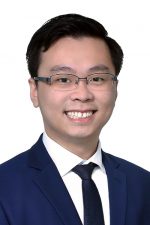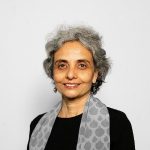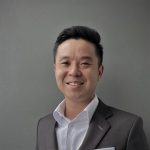
ECONOMIC AND FX OUTLOOK (2.30 PM)

JONATHAN KOH provides macroeconomics coverage of Asia, specialising in Singapore, Malaysia and New Zealand. He joined Standard Chartered in 2015 as an International Graduate. Jonathan rotated in Emerging Markets Rates Trading prior to joining the Economic Research team in May 2016. He holds a Bachelor’s Degree (First Class Honors) in Business specialising in banking and finance. He also holds a Bachelor’s Degree in Accountancy (Second Upper Class Honors) from Singapore’s Nanyang Technological University.

MAYANK MISHRA is a global FX and macro strategist based in Singapore. He is responsible for FX coverage for Korea, Taiwan and Hong Kong as well as APAC G10 currencies. His role also involves analysing cross-asset investment themes and devising trading strategies across FX and rates. He joined the Bank in 2013 as an equity research analyst in Hong Kong before moving to macro strategy in 2015. He previously held quantitative strategy roles at Lehman Brothers/Normura and Goldman Sachs. Mayank holds an MBA from the Indian Institute of Management, Bangalore and a Bachelor of Technology from the Indian Institute of Technology, Kanpur. He is also a CFA charterholder.
POLYMER MARKETS – CHANGING DYNAMICS AND OUTLOOK FOR 2022 (3.10 PM)

MALINI HARIHARAN has over 20 years of experience in the chemicals industry.
Malini drives ICIS’s market development strategy and engagement to showcase ICIS market insights.
She closely tracks and analyses chemical industry developments with a special focus on Asia and the Middle East. She regularly presents at industry events on near-term and long-term outlook for commodity chemicals as well as key opportunities and challenges that the industry faces.
Malini was previously responsible for content development of ICIS training courses and as a trainer, delivered petrochemical training courses worldwide. She has also been involved in editorial engagements at ICIS.
She started her career with Indian Petrochemicals Corp (IPCL) in India, engaged in sales and marketing of commodity polymers such as polyethylene, polypropylene and polyvinyl chloride and chemicals such as benzene, toluene and linear alkyl benzene.
WHAT LIES AHEAD: POLYMERS RECYCLING DEVELOPMENT IN ASIA (3.40 PM)

TAN JIA HUI is an analyst in ICIS’s global Plastics Recycling team. Based in Singapore, she overlooks Southeast Asia and the larger Asia Pacific region.
Her work includes building and maintaining ICIS’s mechanical and chemical Recycling Supply Tracker databases, interpreting market trends, and providing insights to an otherwise opaque region. She also contributes monthly analytic pieces to the Asia R-PET and R-PE price intelligence reports. Her recent area of focus investigates the regulatory nuances of the region, tracking legislative developments and developing Asia’s knowledge bank on the subject.
Jia Hui holds a bachelor’s degree in International Relations from the University of London and possesses a background in sustainability and community innovation. Prior to joining ICIS, she was with a sustainable innovation consultancy, working with stakeholders across the 3P (Public, Private & People).
WHAT IT MEANS FOR PLASTICS AND CLIMATE CHANGE (4.20 PM)

Dr CHIONG MENG SOON is a Senior Lecturer and Research Fellow in the School of Mechanical Engineering, Universiti Teknologi Malaysia (UTM) since 2017. He received his PhD in Mechanical Engineering from UTM in 2015. His main research interest focuses on technologies and methodologies that contribute to a low carbon footprint, particularly in the energy and manufacturing sector.
In recent years, he ventured his research interest into Life Cycle Assessment, dedicated to helping the Malaysian industry to assess their environmental load and impacts towards carbon neutrality and circular economy. He has been working closely with The National Institute of Advanced Industrial Science and Technology, Japan, on developing LCI datasets for various Malaysian industries. One of them is the plastics industry. His interest in the plastics industry’s carbon footprint is not limited to manufacturing but extend to end-of-life disposal.

